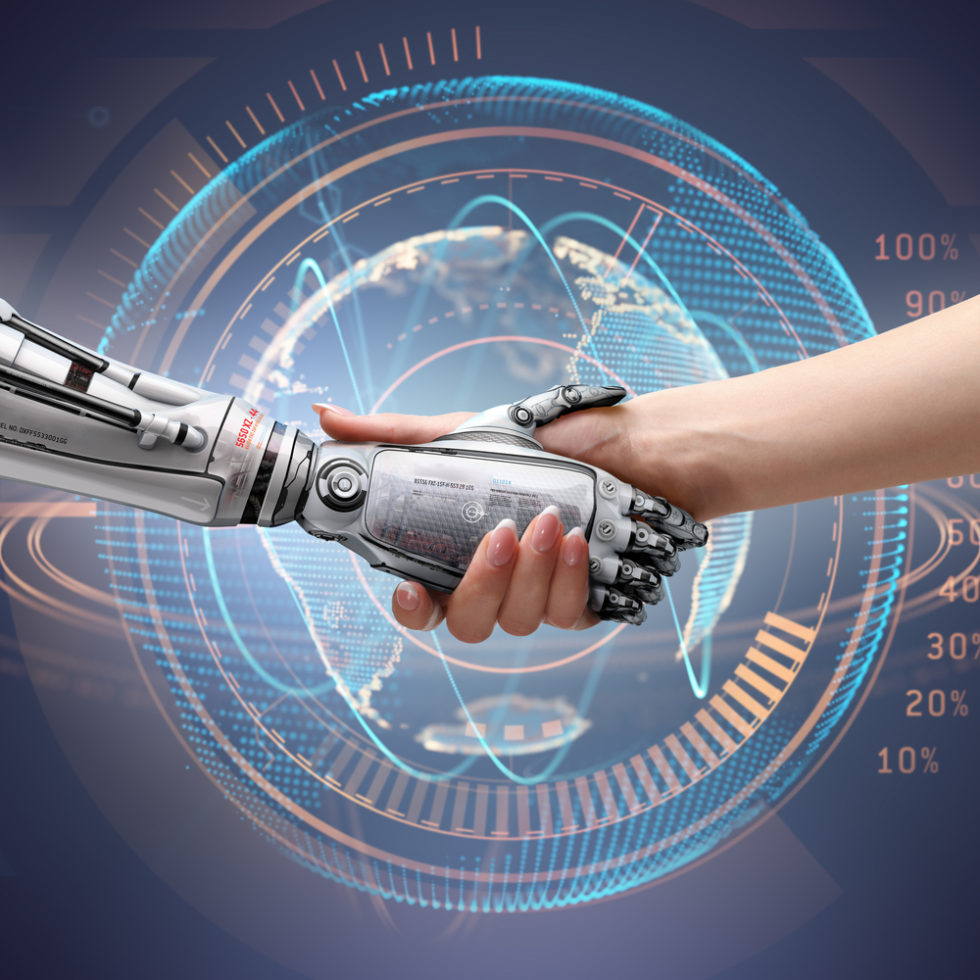
By Jay Bemis | Advertising Systems Inc.
We know what drove our first three industrial revolutions.
First, there was James Watt’s patent for a steam locomotive in 1784, followed by Thomas Edison’s work on electrical light bulbs in the 1870s, and then, in 1969, the launch of the first large-scale computer networking link (ARPANET), eventually leading to a worldwide web.
A fourth industrial revolution now has arrived, and this one is powered by the world of intelligence.
That’s according to Fabio — as in Fabio Moioli, a Microsoft social media influencer, not Fabio Lanzoni, the long-haired model whose presence was prominent on many a romance novel and magazine cover in the 1990s.
Fabio Moioli, as head of consulting and services at Microsoft, does have a star following of his own, as in the 200,000 people who follow him and his thoughts on LinkedIn and Twitter. In a recent tweet, Moioli listed the 10 key technologies that are a part of this newest industrial revolution known as intelligence.
Artificial intelligence (AI) led the way, of course, followed by the Internet of Everything and blockchain. Appearing as numbers four through 10 on the list, meanwhile, were: 3D print, cloud, augmented and virtual reality, autonomous cars, robotics, networks 5G and voice digital assistant.
It’s the first technology on the list, artificial intelligence, that “holds the key to a new human-augmented era,” Moioli says.
“A new world is being shaped, where computers work intelligently on our behalf and with us, rather than under our direct input. Immense opportunities are created by the combination of almost limitless cloud computing power and the digitization of our physical world, with the Internet of Everything.”
What is this “Internet of Everything,” also known as the Internet of Things (IoT), that’s second atop Moioli’s key technologies list?
Forbes describes IoT this way: “Simply put, this is the concept of basically connecting any device with an on and off switch to the Internet (and/or to each other). This includes everything from cellphones, coffee makers, washing machines, headphones, lamps, wearable devices and almost anything else you can think of.”
The rest of the key technologies on Moioli’s intelligence list are in some form of development, which eMarketer noted when reviewing the Consumer Electronics Show in Las Vegas earlier this year.
The show, eMarketer says, was “abuzz with keynotes and panels of experts extolling the virtues of 5G, the internet of things (IoT) and artificial intelligence (AI) — long-awaited technologies that will eventually make everything work better. In this regard, not much was new since last year.”
But, “While these technologies have tremendous promise, 5G is still not ready for primetime; the IoT remains fragmented; Amazon and Google are still locked in a voice-assistant battle; and AI — which is quietly making its way into products and services — still needs humans.”
Moioli knows the importance of keeping humans in the intelligence mix.
As AI and the other key technologies do continue to develop, he says, the world should focus on three intelligence priorities, which he calls “democratizations.” These are:
• Democratizing AI’s Mission
“It is vital that ethics and design go hand in hand,” Moioli says.
“We (at Microsoft) have published our thoughts on a set of core AI design principles to ensure that this technology is transparent and secure, and sets the highest bar for protecting privacy, while also being inclusive and respectful to all. At its core, the role of AI must be not to replace but rather to enhance human skills and drive growth.”
• Democratizing Access to AI
AI must lead to “an inclusive growth,” rather than “just lining the pockets of the few riches.”
“For this reason, we are developing tools that will enable every person and every organization in the world to benefit from AI. We need to evolve AI from centralized local data centers to mobile and cloud, making it accessible to all.”
• Democratizing AI’s use
“We must prepare for the future, including the jobs of the future,” Moioli declares.
“This applies to all governments, schools, public organizations, businesses and individuals at large. Without a deliberate and proactive focus, we’re at risk of leaving people behind in the explosive growth driven by this new technology.“An amazing future is therefore ahead of us, where AI will create new businesses in ways previously unimaginable and will help us to solve some of the planet’s biggest challenges.”
